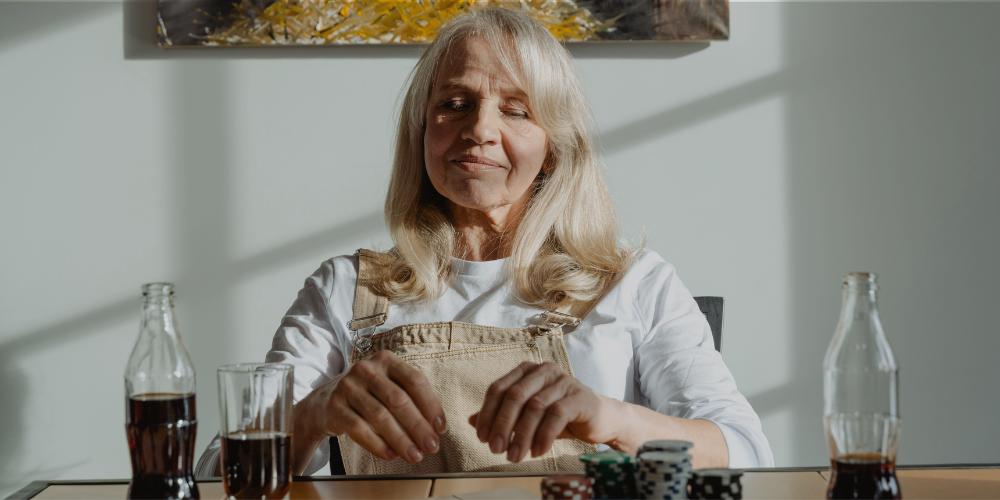By Rick Benson
Everyone has different coping mechanisms, and for some, it’s gambling. A gambling addiction seems easy to hide at first, but many who suffer from gambling addiction often suffer silently.
Different subtypes of gambling disorder, such as action or escape gambling, use gambling habits to suppress distress, which brings up a range of issues particular to each group.
Gambling addictions are not as black and white as they may seem, and quitting is not as simple as “just stopping.” By learning the differences between these subtypes of gambling disorder, gamblers can learn how to avoid hurtful habits.
Gambling Disorder Subtypes: Action vs Escape Gambling
Gambling addiction forms into various subtypes, and learning what type of gambling disorder subtype you have is helpful for recovery.
Here’s what to consider before digging into your gambling origin story:
What is Problem Gambling?
Gambling becomes a problem when you are often preoccupied with thoughts about gambling, and you are unable to stick to a time limit or a spending limit.
You may feel restless or irritable when you try to quit, and may attempt to earn lost money back by gambling more (chasing losses).
Ultimately, gambling is a problem when you are no longer in control of your gambling habits. Problem gambling can cause a strain on your relationships, work life, and mental health.
There are two types of problem gamblers:
- Action
- Escape
Many subtype gamblers can trace how they feel about gambling back to the beginnings of their addiction.
How a Gambling Addiction Starts
A gambling addiction can develop gradually, or immediately, where you feel the brunt of your first bet and need to keep going.
Gambling is designed to be addictive, and you are not weaker than others if you succumb to the lures of gambling.
Radio host Craig Carton spoke about the moment he learned that all gamblers share a unique perspective on addiction. The way action and escape gamblers feel about gambling is very relatable in a way that other addictions can’t touch.
In fact, gambling addiction actually produces the same biochemical changes in the brain as drug addictions, which makes it difficult to quit.
Those who get addicted to gambling have usually experienced a big win at some point, and spend the rest of their gambling days chasing another big win. The problem is that gamblers lose much more often than they win, and if you continue to chase losses, you will continue to lose money. Over time, the gambler builds up a tolerance, their brain’s reward center is weakened, and they will need to take bigger risks and gamble more money in order to receive the same amount of dopamine as when they first started.
Types of Gamblers
Although gambling is often stereotyped as being a problem for younger men, it can take hold of both men and women from all walks of life. Some people can gamble casually from time to time and never get hooked on gambling, but others need to be more careful, and know their limits before placing a bet. Problem gamblers fall into two main subtypes: action gamblers and escape gamblers.
Action Gamblers
Action gamblers play games that require some degree of skill and decision-making, such as black jack, poker, sports betting, and stock trading. They are impulsive and risk-takers who gamble for the thrill of winning.
- Action types of gamblers are often men who started gambling in their teens or early twenties, and are typically assertive, persuasive, loud and energetic.
Action gamblers love social games where their peers can see them as a “winner.” However, these gamblers can even get a high from losing as well as winning, since they are addicted to the action of gambling, rather than the outcome.
One common trait is that action gamblers consider themselves to be “professional gamblers” and believe that their skill will allow them to beat other players and even the house. However, gambling is really not a game of skill - it’s a game of chance, and the odds are always in favor of the house.
Escape Gamblers
Escape gamblers gamble as a form of coping and as an escape from physical or emotional pain, including stress, depression, anxiety, loneliness, or boredom.
These types of gamblers typically play “luck” games which involve very little decision-making, such as the slot, lottery, or Keno machines. This also includes online gambling, which allows gamblers to play in secret, without even having to leave their house.
Escape gamblers report being in a numb or hypnotic state while gambling, which they often seek out as a way to medicate unresolved trauma or painful emotions. This type of disordered gambling escalates much more rapidly than action gambling.

These individuals are often seen by others as being responsible, caring and nurturing.
- Escape gamblers are often women who begin gambling later in life, many are retired or empty-nesters.
Liz Karter, a UK therapist specializing in gambling addiction says, “In a way, [gambling] acts like a form of mindfulness or meditation. They can block out the problems at home and work, and it’s like a protective shield against anxious thoughts and feelings.”
Gambling among women has been rising at double the rate of men, however, women who struggle with gambling addiction are often hesitant to seek help, with many citing stigma as a barrier, since the stereotypical gambler is male.
Gamblers Anonymous meetings also tend to be dominated by men who are action gamblers, and some women don’t feel socially comfortable attending meetings.
Is Gambling Recovery Realistic?
When’s the last time you wanted to admit you need help? Seeking help brings people together who understand gambling addiction and how to beat it! You can bring problems to light and makes recovery more real. It’s also a place to find relief from being honest with yourself and others about your situation.
The reality is this:
- Gambling only puts a band-aid on the larger problem, and in order to treat a gambling addiction, you must treat the underlying cause of gambling.
Everyone is capable of recovery, but gamblers need to develop the proper skills and have resources to help you along the way in order to combat your triggers. At Algamus, this leads to a successful recovery with most clients.
Algamus gambling counselors have nearly 30 years of experience treating both men and women, creating highly individualized treatment plans and aftercare plans. All of our staff are also experienced with and trained in handling the triggers of gambling subtypes. Some are even in recovery from gambling disorders themselves.
What’s troubling you today? If you know someone struggling with the gambling addiction cycle, we’re here to listen and help. We encourage you to reach out to our gambling counselors and seek any guidance on your journey to recovery.




